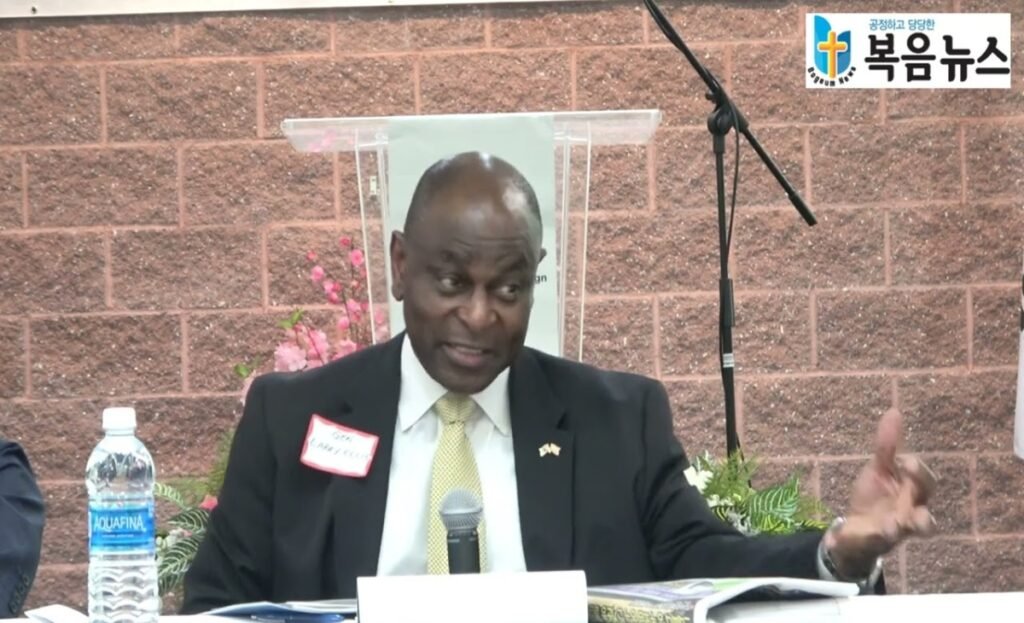General Larry Ellis: Legacy of a Trailblazing Leader

devsdash
Leadership is not simply about giving orders. It’s about influence, integrity, vision, and most importantly, legacy. In the rich and layered history of the United States Army, few figures have embodied these ideals more profoundly than General Larry Ellis. A beacon of excellence, resilience, and strategic prowess, General Ellis’s journey offers a compelling narrative of determination, service, and transformation.
Born in the racially segregated South, General Ellis rose through the ranks during times of social change and institutional challenges. From his formative years in Georgia to his culminating role as the Commanding General of the U.S. Army Forces Command, he consistently demonstrated the transformative power of steadfast purpose and ethical leadership.
At every stage, his actions were not just about advancing his own career but about dismantling barriers and empowering others to follow. His legacy is one of mentorship, innovation, and a refusal to accept the status quo. But what shaped the man behind the medals? What leadership lessons does his life offer to today’s world? Let’s explore.
General Larry Ellis
General Larry Ellis was born on November 17, 1946, in a deeply divided America. Raised in the post-World War II South, he witnessed the harsh realities of segregation firsthand. Yet, rather than succumb to these challenges, he forged a path defined by discipline and achievement.
You May Also Like: Sherpa Legends Trekking with the Experts to Everest Base Camp
He attended Morgan State University, one of the nation’s most prominent historically Black colleges and universities (HBCUs), earning a commission as a second lieutenant in the U.S. Army upon graduation. His decision to join the Army would not only shape his personal destiny but would also position him as a role model for generations of underrepresented youth in the military.
General Ellis’s early military career was marked by a commitment to excellence. He served in various infantry units and steadily climbed the ranks, breaking through systemic barriers that had historically marginalized Black officers. His performance in each assignment reflected not only tactical expertise but also a commitment to fairness and inclusion—principles that would define his command philosophy in the years to come.
Early Challenges and Triumphs
In a military environment that had only recently begun to reckon with integration, Ellis encountered both subtle and overt resistance. Despite this, he excelled. He graduated from the U.S. Army Command and General Staff College and later the U.S. Army War College, two institutions that polish the Army’s top strategic thinkers.
He also served in Korea, Germany, and the continental United States, amassing an impressive array of command experiences. At each stop, Ellis was not merely a bystander to change but an active architect. He worked to implement diversity programs, mentored junior officers, and advocated for equal opportunity long before it was a universal practice.
Commanding with Vision
General Ellis reached the pinnacle of his career as the Commanding General of the U.S. Army Forces Command (FORSCOM), the largest command in the Army, responsible for more than 750,000 soldiers. His leadership during this tenure was transformative. He championed initiatives that modernized training regimens, improved troop readiness, and embraced new technologies.
Moreover, he never lost sight of the human element of command. Under his leadership, there was a renewed focus on the welfare of soldiers and their families. Programs supporting mental health, education, and career transition were expanded, ensuring that soldiers were seen not just as military assets but as individuals with dreams, struggles, and families.
A Leader Beyond the Uniform
After retiring from the Army, General Ellis didn’t simply fade into the annals of military history. He transitioned into the corporate world, becoming President and CEO of SRA International, a global technology and consulting firm. His post-military career further cemented his reputation as a visionary leader with a unique ability to navigate complex systems while maintaining an unwavering ethical compass.
His board memberships and public speaking engagements continue to inspire new generations of leaders in both the military and civilian sectors. He has remained an advocate for diversity in leadership and a vocal supporter of veteran affairs.
Legacy in Action
The impact of General Larry Ellis is not measured solely by his titles or decorations but by the lives he has touched and the systemic changes he has helped usher in. His legacy can be seen in the diverse makeup of today’s Army leadership, the inclusive policies that govern its ranks, and the countless mentees who continue to carry his lessons forward.
Moreover, Ellis demonstrated that leadership is not about personal accolades but about cultivating future leaders. He made it his mission to open doors for others, creating opportunities for those who might otherwise have been overlooked.
FAQs
What were General Larry Ellis’s most significant military contributions?
General Ellis led the U.S. Army Forces Command, overseeing hundreds of thousands of troops. He emphasized operational readiness, technological modernization, and soldier well-being.
How did General Larry Ellis impact diversity in the military?
He was a pioneer in advocating for racial equality and mentoring young officers of color. His efforts significantly influenced diversity policies within the U.S. Army.
Did General Larry Ellis serve in combat?
Yes, like many senior officers of his era, General Ellis held command positions that involved strategic oversight in combat zones, although much of his legacy is tied to leadership and policy development.
What is General Larry Ellis doing today?
After retiring, he served as the CEO of SRA International and continues to speak on leadership, diversity, and public service.
Was General Larry Ellis the first African American to hold a top command in the Army?
While not the very first, he was among the highest-ranking African American generals during his service and was a trailblazer for those who followed.
What leadership qualities is General Ellis known for?
He is widely recognized for his integrity, strategic vision, commitment to diversity, and focus on mentorship.
Conclusion
General Larry Ellis’s story is one of quiet strength, strategic brilliance, and enduring influence. His leadership style—rooted in service, fairness, and visionary thinking—continues to serve as a model in both military and civilian spheres. His journey is a vivid reminder that true leadership is not defined by power but by the ability to lift others as you climb.
As we reflect on his contributions, we are reminded that the most powerful legacies are not built on accolades, but on action, advocacy, and an unwavering dedication to the common good. General Larry Ellis did not just lead troops—he led change.






